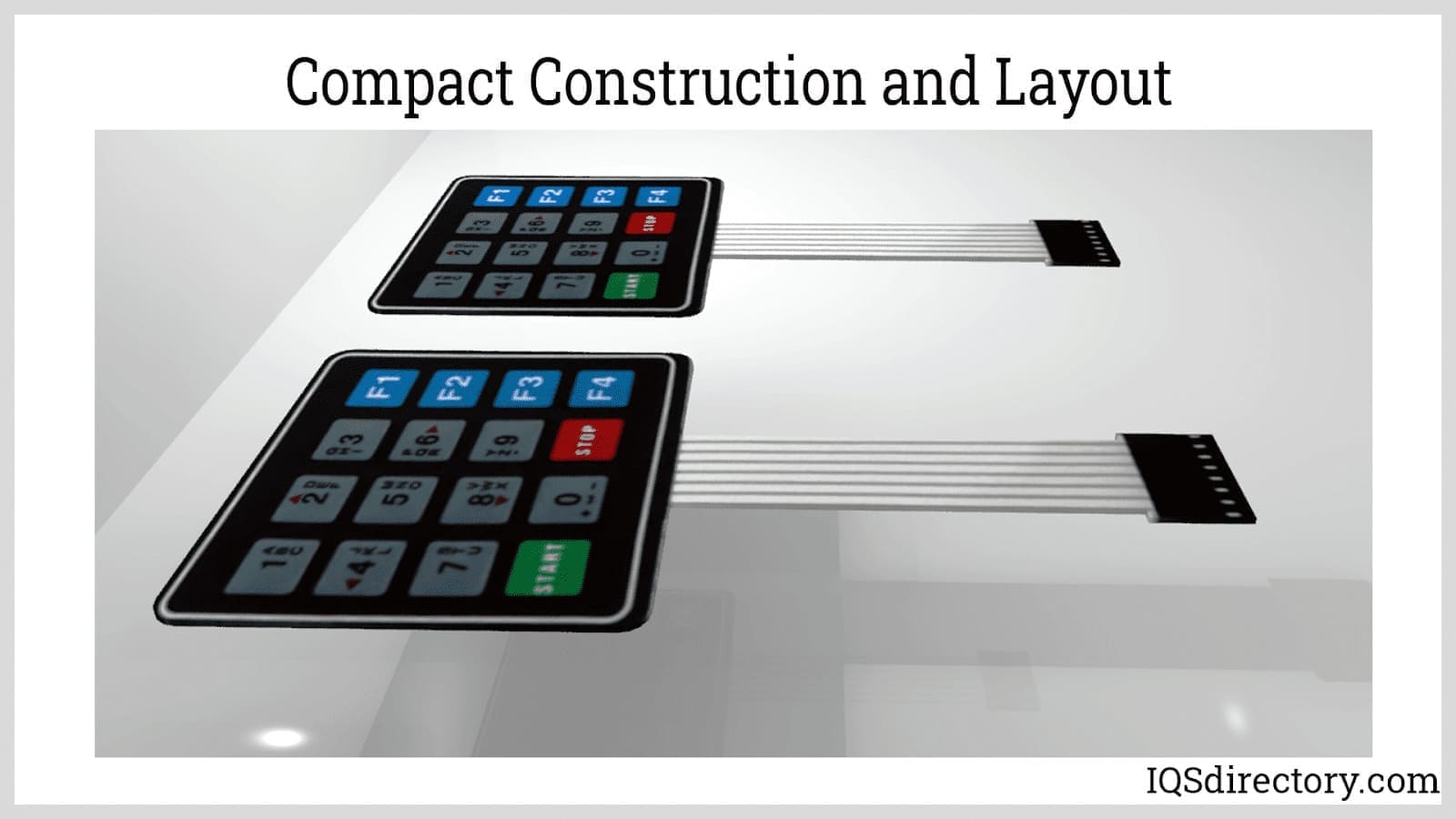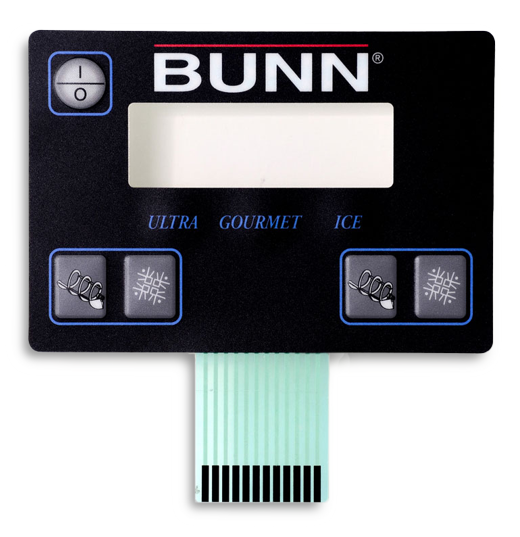Exploring the Future of Membrane Switches in Emerging Technologies
Exploring the Future of Membrane Switches in Emerging Technologies
Blog Article
Comprehending the Significance of Membrane Switches in User User Interfaces
Membrane switches are integral elements in the style of reliable interface, facilitating not just functionality yet also improving visual appeal and user interaction. Their distinct functions, such as resistance to customizable designs and environmental factors, make them suitable for a varied array of applications across multiple industries. As we check out the future trends and different benefits connected with Membrane technology, it comes to be clear that these switches are more than just elements; they represent a convergence of development and usefulness. The ramifications of this innovation on user experience are worth taking a look at additionally.
What Are Membrane Buttons?

The spacer layer, which includes glue buildings, permits for the splitting up of the circuit layer from the overlay, making certain that the button continues to be in a non-activated state until pressed. When stress is related to the overlay, it compresses the spacer layer, connecting the void and completing the circuit in the underlying layer. This layout not just minimizes the physical area needed for standard mechanical switches yet likewise boosts the resilience of the gadget, as Membrane buttons are normally resistant to dust, moisture, and other environmental variables.
Commonly discovered in applications varying from customer electronics to medical gadgets, Membrane switches are essential to contemporary technology, offering a effective and easy to use interface that straightens with modern style needs.
Advantages of Membrane Buttons
While various button modern technologies exist, Membrane Switches deal unique advantages that make them especially desirable in different applications. Among the key benefits of Membrane switches is their compact design, which permits space-saving implementations in gadgets where actual estate is restricted. Their thin profile not only enhances aesthetic appeal but additionally helps with light-weight building and construction.
Another considerable advantage is their resistance to environmental variables. Membrane switches are usually sealed versus wetness, dirt, and contaminants, making them suitable for usage sought after settings, such as clinical gadgets and commercial equipment. This sturdiness expands the life expectancy of the button, minimizing upkeep prices and boosting dependability.
Additionally, Membrane buttons can be personalized to satisfy particular design demands, integrating one-of-a-kind graphics and colors that boost individual communication. Their responsive feedback choices can also be tailored to provide a satisfying customer experience. In addition, Membrane buttons are affordable, particularly in high-volume applications, as they can be generated efficiently.
Applications in Various Industries

In the customer electronic devices sector, Membrane switches prevail in devices such as microwaves, washing machines, and remotes. Their tactile responses and aesthetic alternatives enhance customer experience while supplying a sleek, modern-day look. Additionally, auto producers use Membrane switches in control panel controls and infotainment systems, where space is restricted, and individual engagement is critical.
Additionally, the industrial market leverages Membrane buttons in control panels for equipment and devices, permitting instinctive operation in often severe environments. Their resistance to chemicals and dampness ensures durability and dependability in these applications. Generally, the versatility of Membrane Switches adds substantially to their prevalent use, making them vital in numerous over here technological domains.
Design Considerations for Membrane Buttons

When developing Membrane switches, a number of key considerations have to be thought about to make certain ideal capability and individual experience. The selection of products is crucial; picking resilient, top quality substratums can enhance the button's longevity and resistance to environmental elements such as moisture and temperature variations.
Secondly, the design of the visuals overlay ought to focus on clarity and simplicity of use. Symbols and message should be readable, and the design needs to help with intuitive communication (membrane switches). In addition, tactile responses is vital; integrating a tactile dome or various other systems can enhance the customer experience by offering physical verification of activation
An additional vital aspect is the switch's electric performance. Designers need to guarantee that the conductive traces are correctly developed to decrease resistance and prevent signal disturbance. This entails evaluating the called for actuation force and ensuring compatibility with the electronic components they will user interface with.

Future Trends in Membrane Technology
As innovation remains to advancement, Membrane buttons are poised to advance considerably, driven by technologies in materials and producing strategies. One arising pattern is the unification of advanced products, such as adaptable substratums and conductive inks, which enhance sturdiness and lower the total weight of Membrane switches. These materials not just boost the responsive you could try these out reaction however additionally enable for the style of buttons that can withstand harsher environmental conditions.
Additionally, the combination of touch-sensitive modern technologies is transforming traditional Membrane Switches into even more interactive interface. Capacitive touch sensors installed within Membrane button panels can provide a much more receptive and intuitive user experience, lining up with the expanding demand for smooth, modern-day layouts in customer electronic devices.
Additionally, advancements in printing methods, such as electronic and 3D printing, make it possible for rapid prototyping and personalization of Membrane switches. This versatility enables manufacturers to respond quicker to market demands and consumer choices.
Last but not least, sustainability is becoming a significant focus, with suppliers checking out environmentally friendly products and procedures. As these patterns unfold, the future of Membrane technology promises boosted functionality, visual allure, and environmental obligation, solidifying their duty in sophisticated customer interfaces across various markets.
Conclusion
In final thought, Membrane Switches represent an important element in the design of user interfaces, integrating functionality with visual adaptability. As improvements in innovation continue, the development of Membrane buttons is anticipated to further refine individual interfaces, driving innovation and enhancing usability in an increasingly complex technological landscape.
Membrane buttons are important components in the layout of efficient individual interfaces, assisting in not just functionality but additionally boosting aesthetic charm and individual communication.Membrane Switches serve as an important component in various customer interfaces, assisting in a seamless interaction in between individuals and electronic tools.While many button innovations exist, Membrane Switches deal unique advantages that make them particularly desirable in different applications.Moreover, Membrane buttons can be personalized to satisfy particular design requirements, including one-of-a-kind graphics and shades that improve user communication.In final thought, Membrane Switches represent a vital part in the style of customer interfaces, incorporating performance with aesthetic adaptability.
Report this page